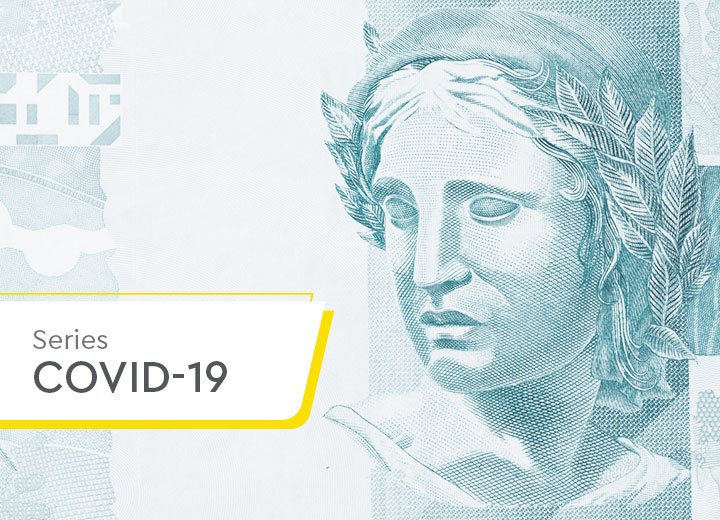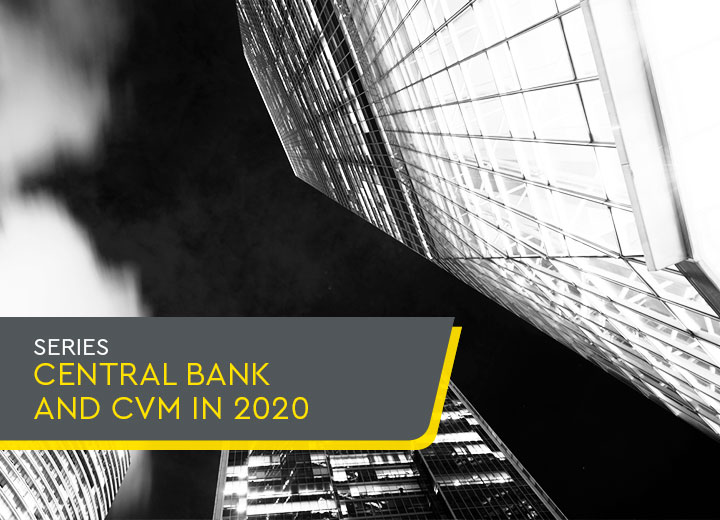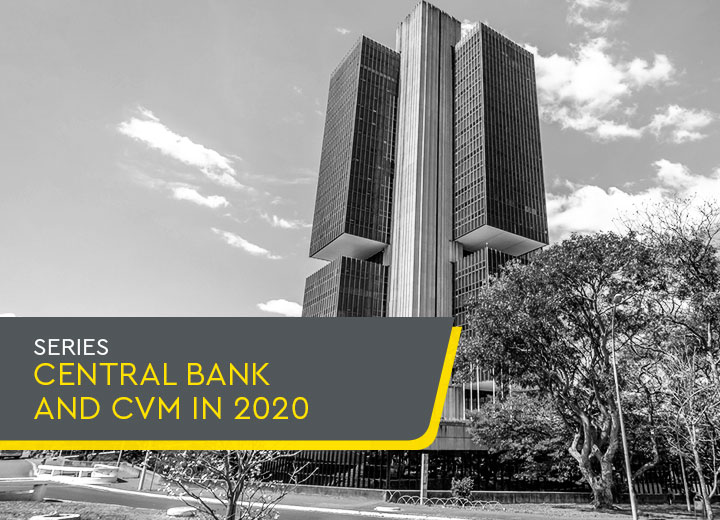Banking, insurance and finance
Given the unprecedented high volatility of the Brazilian capital markets and the restrictions imposed by governments on the movement of people due to the coronavirus pandemic, the Brazilian Securities Commission (CVM) has adopted several measures to foster the economy and provide more flexibility for market participants to comply with the rules governing the Brazilian capital markets.
Prudential regulatory constraints imposed on banks are relaxed in an attempt to maintain the flow of credit in the Brazilian economy and foster economic activity.
On February 6, the Brazilian Securities and Exchange Commission (CVM) issued Instruction No. 619, which amends specific issues of Instruction No. 592/17 (on the activity of securities consulting), to expressly allow investment consultants based abroad to operate in Brazil.
Individuals and legal entities resident, domiciled or with headquarters in Brazil, as provided for in tax law, must report to the Central Bank of Brazil the assets and amounts held by them outside the country.
CVM Instruction 612 introduces new obligations for securities market brokerage firms in addition to CMN Resolution 4,658.
A new method of payment will allow the transfer of funds in real-time starting in November. Click here to see the criteria and forms of participation in the system.
In a new series of articles, we look at the changes that should affect the Brazilian Financial System in the coming years.
The Central Bank of Brazil (BCB) opened for public consultation, on November 28, drafts of a joint regulatory act of the National Monetary Council (CMN) and the BCB and a BCB Circular dealing with the introduction of a “Controlled Testing Environment for Financial and Payment Systems Innovations” (Regulatory Sandbox) under the National Financial System and the Brazilian Payments System.[1]
On September 20, 2019, Federal Law No. 13,874/19 was enacted, setting forth the Declaration of Rights of Economic Freedom. Among the changes promoted by the new law, we highlight innovations for the investment fund industry, with the introduction of a new chapter in the Brazilian Civil Code on the subject (articles 1,368-C to 1,368-F).
Presidential Decree No. 10,029/19, published on September 27, authorized the Central Bank of Brazil (BCB) to recognize the following as being in the interest of the Brazilian government: (i) installation in Brazil of new branches of financial institutions domiciled abroad; and (ii) increase in the percentage of equity in the capital of financial institutions headquartered in Brazil, held by individuals or legal entities resident or domiciled abroad.
On October 7, the Executive Branch forwarded to the National Congress Bill (PL) No. 5,387/19, which allows for implementation one of the objectives of the current management of the Central Bank of Brazil (BCB) mentioned by the president of that organization, in his inauguration ceremony in March of this year: “to make the market more open to foreigners, with a possible convertible currency[1] that serves as a reference for the region."
Law No. 12,414/11, as amended and regulated by Decree No. 9,936/19, regulated the formation and consultation of databases with information on performance, mandating, in its article 12, paragraph 3, that the National Monetary Council (CMN) adopt complementary measures and standards on the provision of information by institutions authorized to operate by the Central Bank of Brazil (BC).













